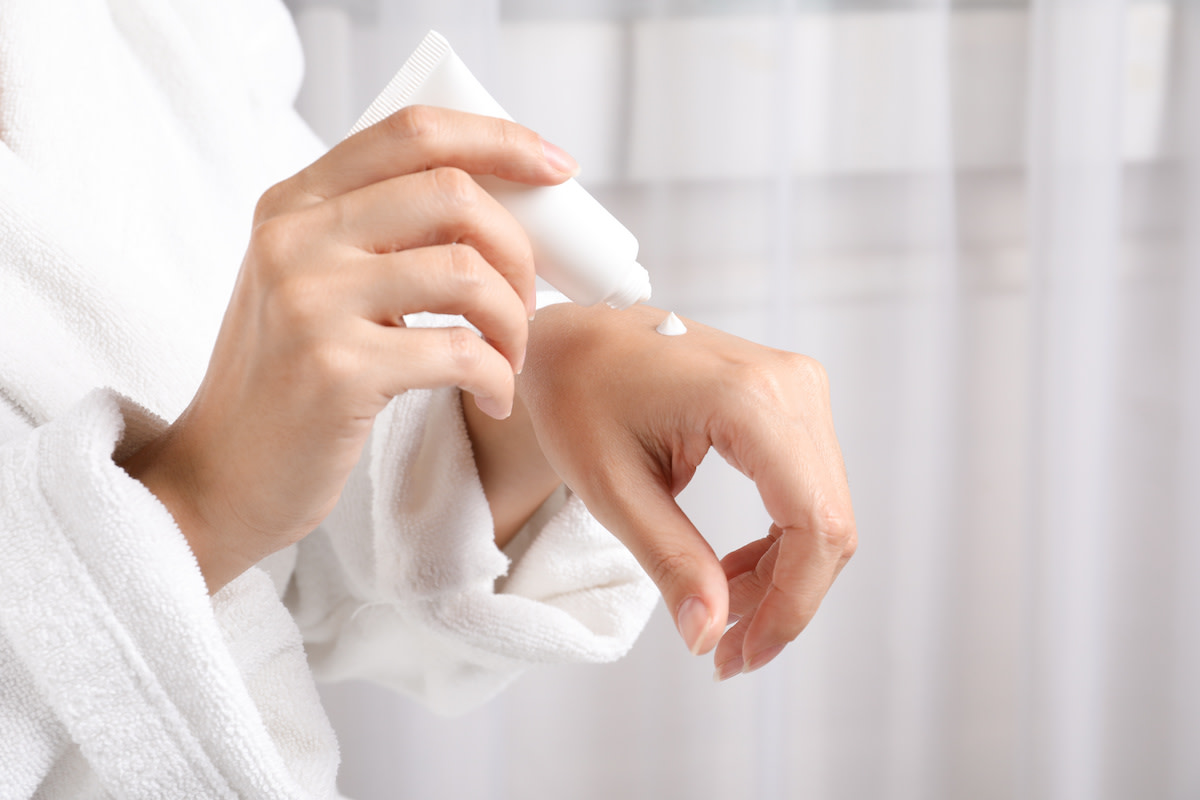How to Use Azelaic Acid in Your Skincare Routine
Written by MasterClass
Last updated: Jul 26, 2021 • 3 min read
Azelaic acid is a substance that is naturally found in grains like wheat and rye, and is used in skincare to combat skin pigment issues and acne. Learn more about how to incorporate azelaic acid into your skincare routine.
Learn From the Best
What Is Azelaic Acid?
Azelaic acid is a substance that can be used as a topical treatment for skin conditions like acne, hyperpigmentation, and rosacea. Azelaic acid occurs naturally in barley, wheat, and rye, and is added to skincare products in serum, lotion, or gel form. A dermatologist may prescribe high-concentration azelaic acid products to people struggling with skin issues like rosacea or melasma. There are also over-the-counter azelaic acid products that have a lower acid content that people with most skin types can use every day.
Azelaic acid has antimicrobial and anti-inflammatory effects and is used in dermatology to clean bacteria out of the skin's affected areas and prevent further breakouts. It is similar to other topical acid skincare products such as dicarboxylic acid, salicylic acid, benzoyl peroxide, and alpha-hydroxy acids.
4 Benefits of Azelaic Acid
Azelaic acid is used in skincare to treat and prevent a number of skin issues and to improve the overall appearance of your skin. Some of the potential benefits of using azelaic acid include the following.
- 1. Removes bacteria from your skin. Azelaic acid has antimicrobial properties that help to clean bacteria from your pores, reducing the likelihood of acne, blackheads, whiteheads, or future breakouts. This can have the added benefit of reducing the size of your pores over time.
- 2. Acts as an anti-inflammatory. Azelaic acid is often used to treat inflammatory acne as it reduces redness and irritation associated with pustules, pimples, and acne scarring.
- 3. Help your cells regenerate. Azelaic acid clears away dead skin cells and encourages skin cell turn-over and regeneration, which aids in the faster healing of acne scarring.
- 4. Treat uneven skin tones. Azelaic acid can potentially help even out your skin tone by reducing redness or hyperpigmentation. Dermatologists may prescribe azelaic acid products to people struggling with pigmentation issues like rosacea, dark spots, and melasma.
How to Use Azelaic Acid
Here is a quick breakdown of how to incorporate azelaic acid into your skincare routine.
- 1. Test it out on your skin. Before you start using azelaic acid in your regular skincare regimen, you should test it on your skin to make sure that you don’t react poorly to it. Do this by cleansing your face with mild soap, then drying it. Test a small dab of the product on a patch of skin on your forehead. Wait 24 hours, and if you don’t experience any redness or burning, you are okay to use the product.
- 2. Use it after cleanser and toner. If you don’t have any adverse reactions to the azelaic acid, you are safe to work it into your evening skincare routine. First, wash your face with a cleanser, and follow with toner. If you use hyaluronic acid, apply that next to lock in your skin’s moisture. Then, apply a thin layer of azelaic acid solution to your face.
- 3. Increase the frequency if you see positive results. If you notice an improvement in your skin after a few weeks, you can start to use it in the morning and the evening to increase your results. Take note of the fact that you should always apply azelaic acid to a clean face. Afterward, you can add moisturizer and sunscreen.
There are some potential side effects of azelaic acid, including skin burning, dryness, and peeling. Azelaic acid products should be used in consultation with the medical advice of a dermatologist, particularly for those with sensitive skin.
Before Starting a New Skincare Regimen
Individuals experience different levels of sensitivity to ingredients found in various skincare products. To prevent adverse reactions, consult a dermatologist before applying a new product to your skin. This article is for educational and informational purposes only, and is not a substitute for professional medical advice.
Learn More
Get the MasterClass Annual Membership for exclusive access to video lessons taught by the world’s best, including Bobbi Brown, RuPaul, Tan France, and more.
